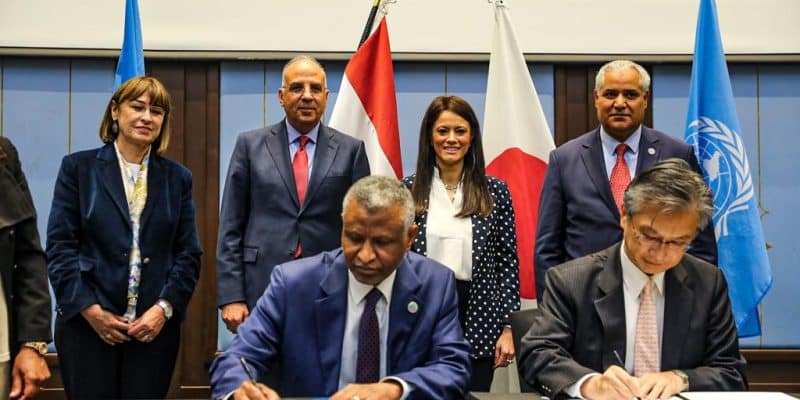Japan is supporting the fight against drought in Upper Egypt and the Nile Delta with a grant of 520 million yen, or nearly $3.8 million. The recently awarded grant will be used, among other things, to finance the installation of irrigation systems in these areas in order to rationalise the use of water resources.
Japan’s funding was provided through the United Nations Food and Agriculture Organization (FAO), the implementing partner of the climate resilience project in Egypt. The Egyptian government will use part of the 520 million yen (about $3.8 million) for the construction of water supply facilities, modern irrigation systems and solar pumps in rural areas in Upper Egypt and the Nile Delta.
According to Nasr El-Din Hag Elamin, Japan’s ambassador to Egypt, these facilities will increase the water available to small-scale farmers in Upper Egypt and the Nile Delta by at least 20%. The project also includes the installation of agri-voltaic greenhouses and the provision of accessories for agricultural tractors and heat and salinity tolerant crop varieties. As a result, agricultural production will increase by 10-20%. Household incomes are also expected to increase by at least 20 percent after two growing seasons, says Nasr El-Din Hag Elamin, Japan’s ambassador to Egypt.
In addition to FAO, the Egyptian government will collaborate with the University of Tottori in Japan, which is very familiar with dryland agriculture, and with the Japan International Cooperation Agency’s (JICA) Smallholder Market-oriented Agriculture Improvement Project (ISMAP), as well as the International Center for Agricultural Research in the Dry Areas (ICARDA).
Read Also –
“The project also presents new solutions for the transition to a low-carbon and climate-resilient agricultural sector, while complementing the National Water, Food and Energy Nexus (NWFE) platform,” says Rania A. Al-Mashat, Egypt’s Minister of International Cooperation. Agriculture is a major source of greenhouse gas (GHG) emissions. It releases large amounts of carbon dioxide when burning biomass, especially in deforested areas, according to the FAO. According to the UN agency, the activity is also responsible for almost half of all methane emissions. “Although methane remains in the atmosphere for a shorter period of time than carbon dioxide, its heating power is about 20 times greater, and it is therefore an important short-term factor in global warming,” the FAO says.
Inès Magoum






